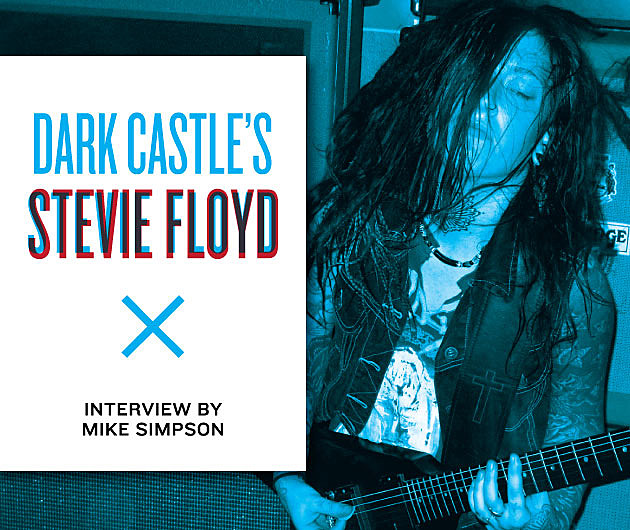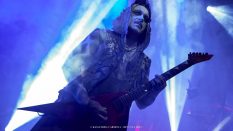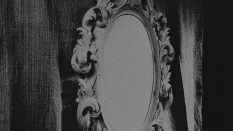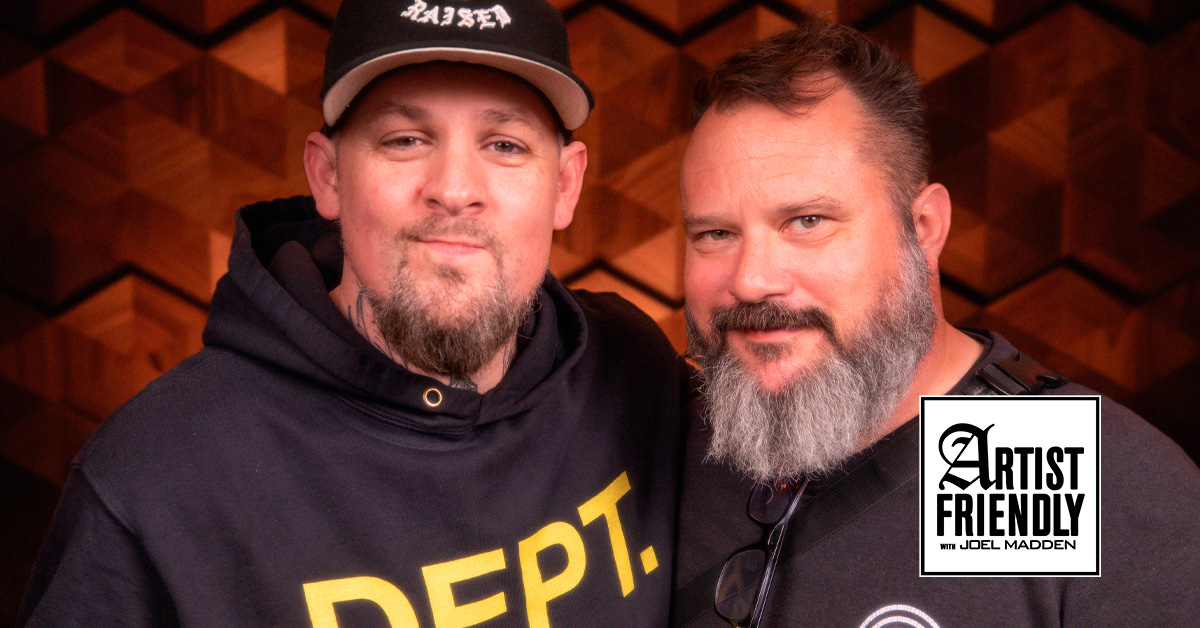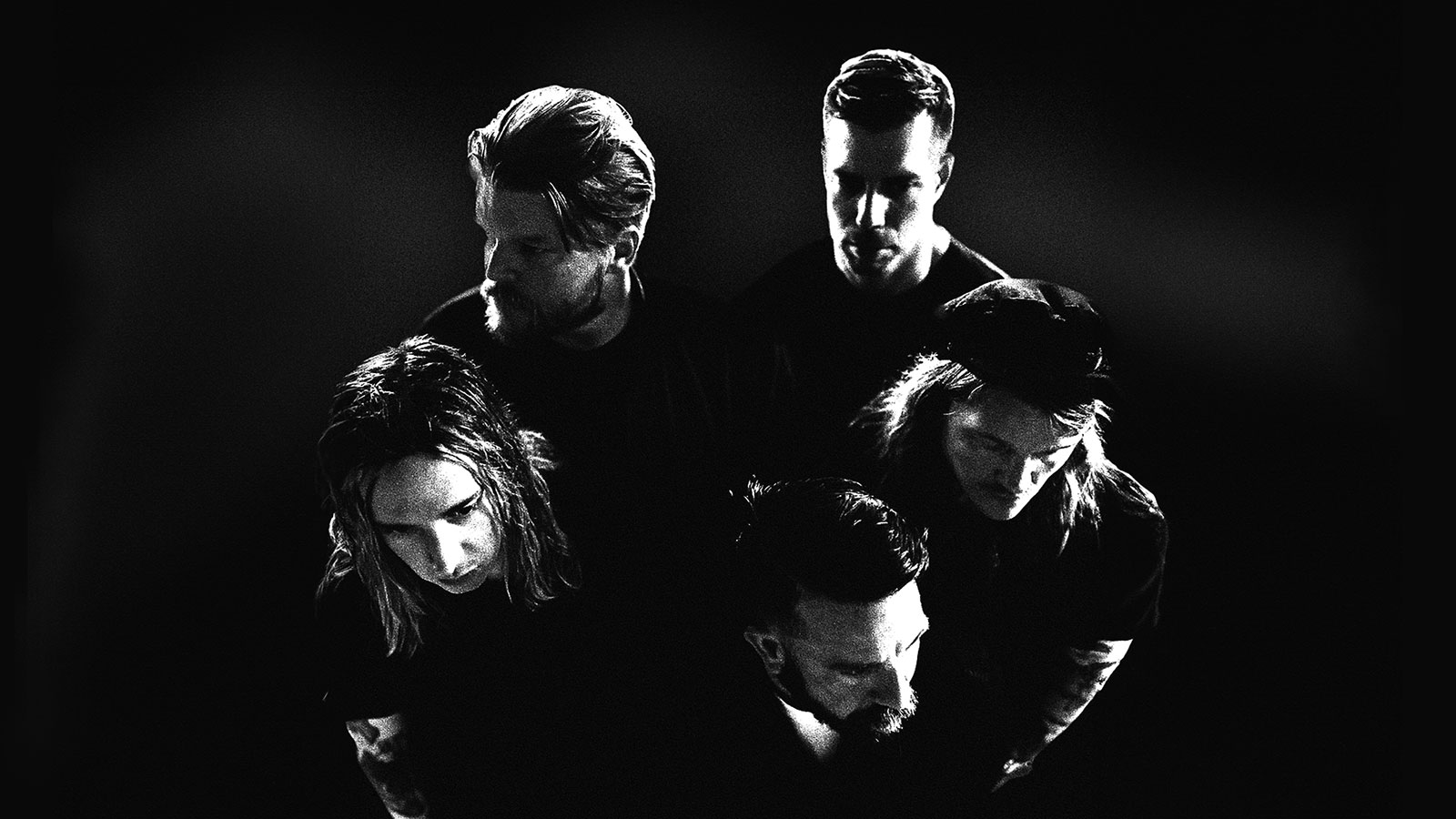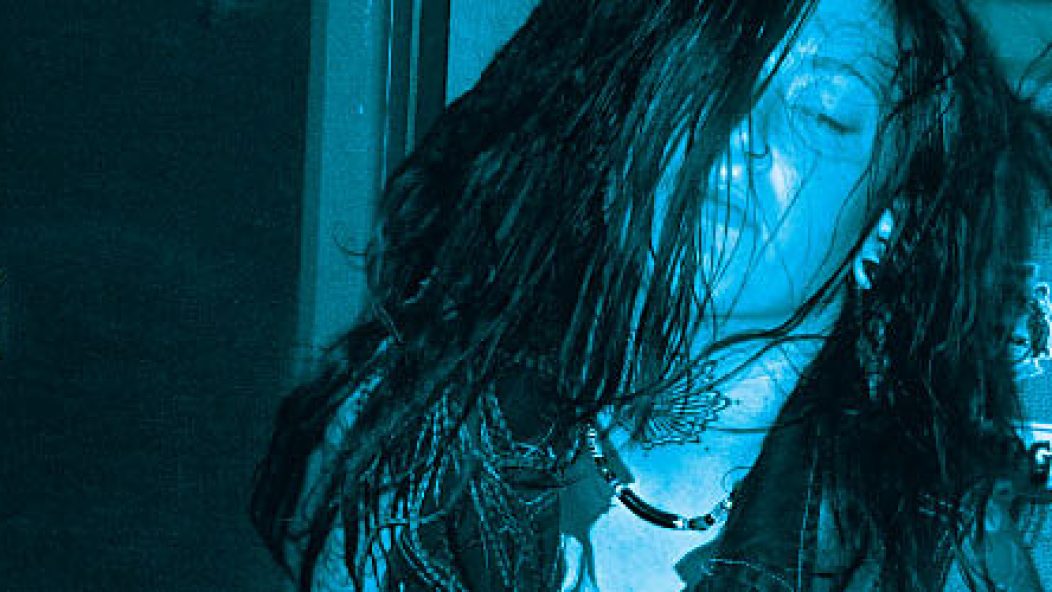
Interview: Dark Castle's Stevie Floyd
Speaking as someone who is slow to respond to things, it took me a while to gravitate toward Dark Castle. The negative implications of gimmickry associated with two-piece bands were, unfortunately, what initially came to my mind. However, upon listening to their previous record, Spirited Migration, then later seeing their association with the almighty YOB, and consequently giving a good listen to last year’s excellent Surrender to All Life Beyond Form, I was impressed by how multifaceted the Florida natives really are, with a rich musical background and broad range of influences from many different styles that are very much out in the open for all to hear. I was very happy to be proven right that much of Dark Castle’s twisting, at times complex, and definitely unorthodox style of sludginess does in fact have to do with their death metal background. I was even more excited to speak at length with frontwoman Stevie Floyd about the spiritual inspirations of the band’s lyrics, and the idea of the music transcending traditional metal stereotypes of negativity and aggression.
. . .
Was it your intention from the outset to do a lot of touring?
Sort of. When we started it was just the two of us on guitar and a drum machine, and it was a lot more technical because we were both coming from death metal bands, and we were playing a lot faster. We wanted to tour but Dark Castle was just a side project we were doing for fun – we were definitely taking it seriously, but even though it was only six or seven years ago when we started, there weren’t a lot of two-pieces we were aware of, so the band was more of a fun thing for us. Once we started writing, we were playing every day and were just so obsessed with music, it pretty quickly became something that we were really serious about and wanted to tour, but it came about naturally.
Being based in Florida, did you feel the influence of classic Floridian death metal on what you were doing?
For sure. Death is one of our favorite bands of all time, Morbid Angel is one of Rob’s favorite bands and definitely a big influence to me too. We listened to a lot of death metal back then, but we’ve always listened to lots of different kinds of music. I always kind of think in a death metal way, even if it’s slower music, a slower, minimalistic style or a time signature, even alternate picking, palm muting and weird circular riffs – to me a lot of death metal has this lullaby effect where it’s in this swirling, circular motion with all the different kinds of picking and timings.
Do you attribute a lot of what you’ve written, i.e. the more technical, odd-timed riffs that sets your music apart from others within sludge/doom, to having a background in death metal?
Probably a lot of it, yeah. Also, Rob is an incredible guitar player who has taught me a lot – he got me into scales when we first met, a lot of multicultural scales that have been around for hundreds of years before the blues, and I was immediately into it because I was familiar with some of it from piano, which I had played since I was a little kid. A lot of people are scared of scales, but they’re actually just this loose, general guide that there’s so much you can do with – it’s limitless. For example, we use Japanese scales a lot, and there’s only five notes, it’s really simple, but there’s thousands of different things you can do with that. And your creative imagination is still there within what you’re writing, you’re just putting it within this framework. I can’t even really write outside of scales; once I started I couldn’t really go back.
And yeah, we have a lot of weird timings, I don’t exactly know how that happened – a lot of it probably has to do with the fact that we played death metal… once we started slowing things down, it made everything sound even more off-time and weird. We’re really into having the eccentric times and accenting in weird places and have little riffs that transition from one thing to another and they’re kind of out of nowhere, but still keeping that underlying groove so you could play it to a metronome if you wanted, sort of – but it’s not.
When writing, have you ever been concerned about taking elements like time signatures and scales too far, and making it too hard to follow for the listener?
Oh yeah, that’s a huge thing for us. It’s so easy to cram 20 riffs into a song, go crazy with it and do too much. It’s both of our tendencies to do that already. It’s something we’ve definitely had to watch and control. When we started, we had a demo with a song on it called “Guardian of the Fire”, that had 18 riffs, I think, and it wasn’t even that long, probably seven or eight minutes long. I still think it’s cool as far as musicianship goes, but it was just too much. Something that’s funny is, a few years later we took that song and slowed it way down – made it 25 minutes – and we recorded it, but we never put it out; I don’t know if we ever will. In the last few years I feel like we’ve gotten a grasp on simplifying things, making things more minimal, and on this new album we have more of a verse-chorus effect, trying to imply basic songwriting techniques, just because our writing can be so crazy and confusing. We also have been trying to keep it short – after we had about 27 minutes on the new album, Sanford said “yeah, this is enough, if you do much more it’s gonna be too much,” and I was like, “OK, cool”.
What got you into using a chorus effect on some of your guitar parts?
We used it on Spirited Migration here and there, but I wasn’t as nerdy with it as I am now. I don’t know what it is; a lot of the riffs I wrote on the new album are so simple and kind of creepy already – we used almost all Hungarian scales on this album, which we were really moved by – there’s something about a Hungarian scale with a chorus pedal… I don’t know, it gives me chills; it kind of wobbles the notes, and when you add bending and pinch harmonics, it sounds so creepy and beautiful, but totally fucked up at the same time and that’s kind of the way that I write: I like things that are completely fucked up, but beautiful, too. Along with the chorus, I do some others with my tone and my guitar and my pedals, but they’re all very subtle, so that the true nature of the notes comes through and doesn’t get lost under a bunch of pedals.
In a live setting, did it take you some time to figure out how to connect with and have an impact on an audience, as a two-piece?
Yeah, that’s definitely something that we’ve worked really hard on. It was definitely hard at first… we took on too much, we tried to have a light show and a smoke machine and two vocals, and Rob would use a synth live, and a loop pedal, and then of course I had all my pedals – it was cool, but it was a lot going on, and we tried to simplify some of that. We tried to find little things to push to fill out the tone – Rob used marching drums, he’d use a 28-inch kick drum with a 26-inch kick drum on the side for a floor tom, and a floor tom as a rack tom, and he had a deep Ludwig marching snare drum, and he’d set up in front of my amps because the first few years we didn’t really have sound at a lot of venues, so we tried to get it to where his drums would cut through. I would usually have two guitar tones – a Model T for my dirtier tone, and then a more clean tone, and then a bass rig so that we could get the highs, mids and lows; and I used more baritone strings and a bit of octaves, just to try to fill it out so we didn’t need a bass player.
Given the Death influence you’ve already mentioned, have your lyrics been particularly influenced by Chuck Schuldiner’s lyrics, particularly those on the later albums?
Definitely. Death are a huge thing to me. His lyrics on every album are incredible. A lot of people disagree with me, especially my older friends that are only into the old-school stuff, but I think each one of the Death albums is equally as good and equally ahead of their time. For me personally, they reached further and further with each album. Each album gets more and more transcendent of any kind of genre of metal and the musicianship and players that he got on each album – with that last one, I’m pretty sure he knew what was going with his brain tumor when he wrote that – if you know you might be deathly ill and you write this album – I mean, if I knew I was gonna die, I would probably write the most ridiculous album you’ve ever heard, for obvious reasons – you would just need to get it out of you. I might be adding a lot of drama to this but I feel like that was what was going on.
But yeah, his lyrics are intense. There are little one-liners like “In the eye of the beholder, one cannot assume”, stuff like that. Chuck Schuldiner and the way he composed the songs is a big influence. He used a lot of harmonic minor scales and I’ve always loved those – usually Middle Eastern scales would inspire me more but what he did with them, he used them in such weird ways… no one really writes like him.
The lyrics on your newest record are very different from normal lyrics in heavy music, and sludge/doom music more specifically: The music that you play is extremely heavy and is at times brutal, at times oppressive. But your lyrics are more transcendent; they don’t mirror what one would think your intent was when playing the music.
Yeah I get that a lot; and I’m so glad that you know that or even read them, and that people care about that; it really makes me happy. There’s so many more people than I ever imagined that know the lyrics or read them or sing along or whatever; it’s pretty unbelievable. I love all kinds of lyrics; I love Dio and how he sings about dragons; that’s cool, but when I’m writing, it’s such a deep thing for me and I’m trying as I get older and as I play music longer to get more blunt with it and not try to be so poetic. Sometimes it comes out a little confusing – I mean, they’re lyrics, so everybody takes something different from them; they don’t mean any one thing. They mean something to me, but everybody has their own take on them, of course.
For this last album I tried to simplify some of them, make them more blunt. When we were going to name the album, I was thinking of something along the lines of Surrender to All Life Beyond Form, but it was so long and blunt and in your face, and I think Rob was on the fence about it, worrying about it being too long, but I knew it was what it needed to be; it’s just what this album is about, and it’s what I’m trying to do every day and have been working on harder and harder as I get older. I feel like the more that you just think into your music and just delve in without thinking about what anyone else thinks or anything else in the world, just completely zone out on it; the more you can do that and not care about whether something sounds weird or “I don’t know if this goes”, all the questions you ask yourself when you’re writing – I just try to completely ignore all of that and focus on the true thing that’s inspiring me in that moment – and it’s rad because we write all the time. Some of that stuff I wrote when I was in Europe or on a plane or lying in my yard in the grass or lying on my bed or when I was totally stoked on life or when I was really pissed. It’s cool that I can remember each lyric or riff and where I was and what was inspiring me at that moment. That’s so important to me in writing an album, and not just setting a date to record and then you write the album every day for two months before and then you go record, it’s such a robotic thing to me to do it like that.
We have tablature books we’re always writing; every time I write something I tab it out immediately so I won’t forget it. It’s fun to dig deep into that stuff and watch the songs form themselves, flowing from every direction, where you’ve been when you’re writing. It’s a really spiritual thing for me. And I feel like the more that you’re really into your music – if you’re on stage, leaving your body, feeling your music so much – people feel that, and they feel that on your recording, too, even if they don’t know what it is.
Dark Castle also bears a lot of similarity to YOB, in terms of lyrics that are “transcendent”. Did you ever feel the influence of Mike’s lyrics on your own writing?
Totally. YOB is a big deal to me and Rob. Ever since their first album, Elaborations of Carbon – I got it on a mixtape a friend made me and no one in Florida had heard of them, that I knew. I was immediately like, “What the hell is this, this is the weirdest thing I’ve ever heard”, and I couldn’t even wrap my brain around it, and that’s why I loved it – my favorite bands are ones where you can’t even wrap your brain around what’s going on with the music. Then when I started reading the lyrics, I was like, “Wow”. I don’t really know many other people that play eccentric, artsy, slower metal that write like that. Mike and I write completely different, but are definitely influenced by a lot of the same things. He writes a lot more about cosmos… he blows my mind, it’s so genius in so many ways. They were one of my favorite bands for a long time, but I never could see them because a lot of the West Coast bands that were a big inspiration to us never came to Florida, really.
So when I met Mike at Roadburn a couple of years ago, there was an immediate connection. He had already listened to our music and I was completely honored that he liked our band. We immediately became best friends and talked every day, and we wrote some music together that not a lot of people have – I made a few hundred copies – it’s a 25-minute long recording called Spirit Ritual. It’s a lot of chanting with guitars and singing… it was a beautiful experience and we wrote the lyrics together.
Then the last YOB and Dark Castle records came out right after each other. When we wrote those albums we were together a lot; we were hanging out all the time and we wrote a lot of that stuff influencing each other and being influenced by a lot of the same things and kind of in the same place, and asking each other about the riffs and the lyrics we wrote. It was an amazing experience for me to be so close and best friends with someone who is such a big inspiration to me. And then of course I did the art for YOB’s last album, and it was really cool that they took us on tour and treated us so well, and Rob played drums for YOB on both tours. We just sort of meshed together into this thing for a while… it’s mind-blowing when I think about it.
On the new record there’s a lot of repeated imagery – in the album art and in your lyrics – with eyes and sight. What’s the significance of that for you?
I was thinking a lot about the five senses when I was writing. All of them are different; some of them are inspired more with growth and transcending this life; more of an uplifting manner; others like “Heavy Eyes” are more dark – that one is probably my favorite to play live; I get so lost, I feel like I’m not even there when I play it, I love it – eyes are everything to me; they’re probably the only physical thing on our body that’s a window to the inside – you can see someone’s entire past or inside or spirit or soul through eyes… it’s such a deep thing with so much historical content, like the Third Eye and the Eye of Ra.
Ever since I was a little kid I’ve been obsessed with eyes. I used to draw eyeballs all day in my Trapper Keeper and wear eyeball rings and necklaces; they’ve always been a deep thing for me, and I was just thinking a lot about that and the five senses and how the five senses are everything – like the song “I Hear Wind” – they’re how we experience everything… it’s so hard explaining this stuff, but I feel like, as important as it is, it’s also not important; being isn’t important, at the same time. The song “Stare Into Absence” is about that. It originally was about staring into the eyes of God, the Universe, interconnectedness – whatever you want to call it – I was trying to think of the right word for it, and absence was the only thing that made sense to me, because staring into nothing is everything, and having nothing, and having space, is everything.
It’s a big deal to me in music, too, having space and breathing in between lyrics and breathing in between riffs, and having the negative space within the song structure be just as important as the actual music. That song is so simple: “I want to stare into absence, breathing life felt only through absence, not felt through thought” is the most simple thing, but it’s so powerful to me. It feels so good singing that song; I get really intense with it; especially on the recording, and now we’ve played it live a million times; I get even more passionate about it.
What’s the significance of the figure on each of the lyric sheets on the record?
I had an idea where I wanted to do a drawing for each song so that there’s a visual to go with it. Again, the five senses play in here – for me, music should be seen and heard, and art is so important with music – with packaging, or posters, or the imagery you create onstage – creating an entire vibe is so important. I felt like a lot of these songs might not be clear enough, so I wanted to put art with them, even though I’m sure it might not make sense to some people. I decided to do it after our album was completely recorded. I did what came to me. I wanted it to be very free and loose; some of the hands in those drawings aren’t perfectly in proportion or whatever, but I didn’t want to critique them too much. I shaded all the drawings in with a lighter and a candle and the soot from a flame and just wanted them to be really messy and dark, not perfect in any way. It felt good doing it that way, not being so meticulous about it.
What about the concept of “death”? What is the connotation of death as you have it laid out in these songs, i.e., your lyric “die to yourself each day” from “Learning to Unlearn”, or the title “To Hide is to Die”…
It’s kind of everything. Death and life are so similar, and being born and dying are so similar, and not being afraid of death is so important; I mean, that’s everything. Living life to the fullest and doing everything you’ve ever wanted to do in each minute and not being afraid of death, so that whenever it comes, you feel like “OK, I did everything I ever wanted to do”. That’s really important to me.
“To Hide is to Die” is about being buried alive, and being so comfy in the dirt, and just kind of hiding… it’s referring to how a lot of people who don’t do what they feel in the moment because they’re afraid, or they stay in a comfort zone. You get sucked into that a lot in life, some more than others. The more that you get sucked into a comfort zone, the more that you’re afraid to step out and just do something and not care about the end result, or not care about what anyone thinks. But the more that you get to where you aren’t afraid of what anyone thinks, and the more you practice it and just do what’s in the moment, the more you can do that. And I’m always practicing that, and not trying to over think things or worrying about being poor, or worrying about “Oh, this is going to give me this result” and just doing things. I’ve always kind of lived that way, but a lot of times when you get older you get more scared or more comfortable, or more worried about the future and success, or whatever. Every year that I get older I try to become more like a kid, clear my mind more and do whatever I feel in the moment, and not worry about an outcome, and “To Hide is to Die” is about that – just being completely comfortable in dirt, but then in the song I’m saying how the dirt starts speaking to me, saying “Look toward the light”, and “grasp all within reach”, and “look not behind your eye”.
I think it’s important to talk about the chaos of the world, but to me it’s not just that. I don’t want to just sing about everything that’s fucked up in life, because there’s always a way out of it and there’s always a way to transcend from it. To me, it’s important to talk about the chaos and whatever’s going on, but how you can grow from that, and how you can not be a part of that, and not participate in the messed-up stuff in the world, and how you can get past it. So, yeah, it’s definitely about death, and it references that, but death’s about life, and there’s so much heaven in this world right now that you can attain and pull into your atmosphere and make it your own, and to me, when you’re in that frame of mind, it puts your mind in a great place for after you die, or whatever happens…
And “dying to yourself each day” – that’s a huge thing to me. “Learning to Unlearn” – you learn so much knowledge when you’re a kid, you’re gradually just broken down and broken down and broken down by people that are guiding you, whether it’s your parents or teachers or the government or the media or the church or whatever – all these systems that gradually break you down over the years, and tell you what’s right and wrong, and tell you what to do, and tell you what success is, and how to live; by the time you’re an adult, you’re so lost, you’re just thrown in after being brainwashed your entire life. It’s no one’s fault; everyone’s just doing their best and doing what they know, but to me it’s about unlearning all of that, growing every day and just unlearning all of that stuff you’ve been fed and making your own way; dying to yourself each day and waking up the next morning and it’s a new day; it doesn’t matter what happened the day before; not getting sucked into the past and just being present in the moment. That’s how you get through hard times, and life in general, for me at least.
. . .
http://www.youtube.com/watch?v=lB-_gASCQco
Dark Castle – “Seeing Through Time”
. . .
Dark Castle – “I Hear Wind”
. . .
BUY SURRENDER TO ALL LIFE BEYOND FORM
Profound Lore (CD)
Brutal Panda Records (LP)
Amazon (Digital download)
. . .
Header photo by Carmelo Española.
. . .
